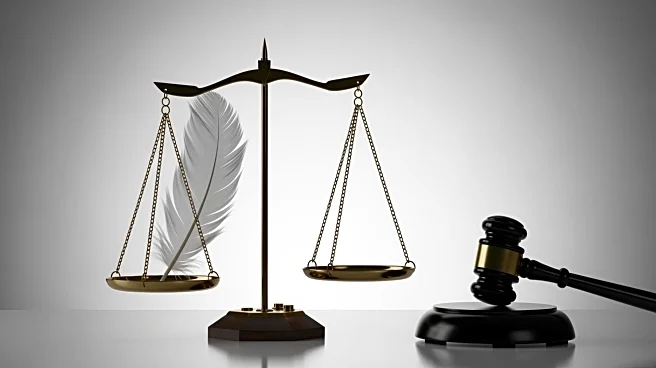What's Happening?
Annemarie Wiley, a cast member of 'Real Housewives of Beverly Hills,' has successfully defended herself against a defamation counterclaim filed by the American Society of Anesthesiologists Inc. Wiley had
initially sued the organization for defamation, and in response, the group filed a counterclaim. However, Judge Manish S. Shah of the US District Court for the Northern District of Illinois ruled that Wiley's statements were nonactionable opinions and protected by the fair reports privilege. This legal principle allows certain statements made in the context of legal proceedings to be protected from defamation claims. The judge's decision effectively dismisses the counterclaim against Wiley.
Why It's Important?
The ruling is significant as it underscores the legal protections available for individuals involved in defamation cases, particularly the fair reports privilege. This case highlights the challenges faced by public figures in defending their reputations while navigating complex legal landscapes. The decision may influence future defamation cases, especially those involving public figures and professional organizations. It also serves as a reminder of the importance of distinguishing between actionable defamation and protected opinion, which can have implications for media and public discourse.
What's Next?
Following the dismissal of the counterclaim, Annemarie Wiley may continue her original defamation case against the American Society of Anesthesiologists Inc. The outcome of her case could further clarify the boundaries of defamation law, particularly in cases involving public figures. Legal experts and public figures will likely monitor the proceedings closely, as the case could set precedents for similar legal battles in the future.
Beyond the Headlines
This case brings attention to the broader issue of defamation law and its impact on freedom of speech. It raises questions about how public figures can protect their reputations while ensuring that legal protections do not stifle legitimate criticism or opinion. The balance between protecting individuals from false statements and preserving free speech is a critical aspect of defamation law that continues to evolve.









